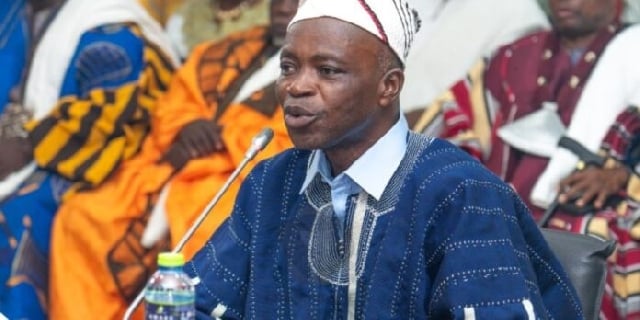Mr. Ali Adolf G. John, the Minister-designate for the Northern Region of Ghana, presented himself before the Parliament’s Appointments Committee for vetting, outlining his vision for the region’s future. His primary focus, he emphasized, would be establishing lasting peace and fostering harmonious coexistence among the various communities. He recognized the detrimental impact of the region’s reputation for conflict and expressed his firm commitment to changing this narrative. He pledged to prioritize conflict prevention rather than mere resolution, working proactively with traditional authorities and strengthening district and regional security councils to preempt potential flashpoints and ensure stability. This commitment to peace, he asserted, was fundamental to achieving sustainable development in the region.
Beyond security, Mr. John highlighted the agricultural sector as a critical area for development. Recognizing the region’s potential for agricultural prosperity, he pledged to attract investments and promote irrigation-based farming to facilitate year-round cultivation. This strategy, he explained, would enhance food security and contribute significantly to the region’s economic growth. He envisions a Northern Region that can not only feed its population but also become a major contributor to national food production. By creating a conducive environment for agricultural investment, he hopes to unlock the region’s full agricultural potential, benefiting both local farmers and the nation as a whole.
Addressing the issue of youth migration, Mr. John proposed a comprehensive apprenticeship program targeting young men and women. He outlined plans to connect them with experienced master craftspeople in various vocational fields such as sewing, hairdressing, and trading. This initiative, he argued, would equip the youth with valuable skills, creating employment opportunities within the region and thereby reducing the incentive for migration to the south, particularly to the Greater Accra region. By empowering the youth with in-demand skills, he aims to create a more vibrant local economy and stem the tide of out-migration, which often results in young people facing challenging circumstances in urban centers.
Mr. John also touched upon the existing infrastructure and social programs initiated by previous administrations. Specifically, he acknowledged the construction of a hostel for head porters (Kayayei) by the previous NPP government. He indicated his willingness to review and continue any such projects that proved beneficial to the people of the Northern Region, regardless of their political origin. This demonstrated a pragmatic approach to governance, prioritizing the welfare of the citizens above partisan considerations. He signaled an intention to build upon existing foundations and leverage any successful initiatives to further the development of the region.
In essence, Mr. John’s vision for the Northern Region centers around three key pillars: peace, agricultural development, and youth empowerment. He recognizes the interconnectedness of these elements and believes that fostering peace is a prerequisite for achieving the other two goals. By prioritizing conflict prevention, promoting year-round agriculture, and equipping the youth with marketable skills, he aims to transform the Northern Region into a peaceful, prosperous, and self-reliant region. His commitment to continuity in beneficial projects demonstrates a practical approach to governance, prioritizing the needs of the people above political considerations.
His emphasis on collaboration with traditional authorities underscores the importance of local partnerships in achieving sustainable development. He understands that engaging with traditional leaders and respecting local customs and practices is crucial for effectively implementing his vision. Furthermore, his focus on attracting investment demonstrates an understanding of the need for external resources to boost the region’s economy and create opportunities for its people. His approach appears to be holistic, aiming to address the root causes of the region’s challenges and building a foundation for long-term growth and prosperity. The success of his tenure, should he be confirmed, will depend on his ability to translate these aspirations into concrete actions and effectively engage with all stakeholders in the region.














